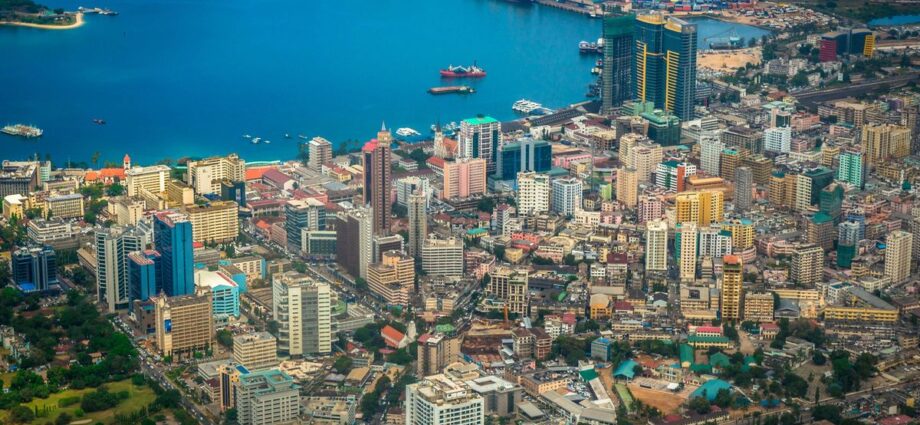Planning is all about making choices. And when it comes to making choices to uplift the lot of Tanzanians, it doesn’t look like this is anyone’s business.
For everywhere you look, you see multi-billion dollars opportunities just lying around, with no one showing any care. Migration is one such opportunity. Just consider the remittance statistics.
In 2023, the transformative power of remittances was vividly illustrated by the top ten African countries. Nigeria led with a staggering $23 billion, followed by Egypt’s impressive $19.53 billion, underscoring the crucial role of diaspora contributions. Kenya, the beacon of East Africa, drew in $4.16 billion, reflecting its regional influence.
Meanwhile, Senegal and Zimbabwe, with $2.94 billion and $3.08 billion respectively, saw remittances forming nearly 10 percent of their GDPs. Yet, Tanzania, with a population size much higher than that of Senegal and Zimbabwe combined, has remittance inflow of $332 million, accounting for a mere 0.4 percent of its GDP.
Clearly, there’s a yawning gap between Tanzania and its peers in terms of remittance inflows. If Tanzania were to achieve remittance levels similar to Kenya and Nigeria, its inflow would need to increase by approximately seven times, from $332 million to around $2.47 billion and $2.86 billion respectively.
In sub-Saharan Africa, which depends on foreign investments for growth, remittances, which already outperform FDIs by a staggering two to one, hold great promise. These statistics highlight the immense untapped potential for Tanzania to transform itself by turning migration into a powerful force for growth.
So, why doesn’t Tanzania have the kinds of remittances that other African nations enjoy? Several factors are at play, but the policy environment is mostly to blame for that.
Tanzania has lacked conducive policies to encourage outward migration. For decades we have been stuck in the fallacious ‘migration is brain drain’ narrative, making Tanzania’s diaspora quite small compared to population size.
To be competitive, we need government-led initiatives to promote overseas studies and employment.
Kenya is now exporting 1000 youths abroad every week – that’s what I am talking about. We need a strong focus on skills training and language proficiency. A few years ago, the UAE asked Zanzibar to send 600 drivers, but the government could hardly find dozens due to language limitations.
We also need to diversify our labour export destinations. Tanzanians have mostly been gravitating towards the ‘old world’ – the UK, the US, and so on, while ignoring emerging economies. Nations such as Poland, Turkey, India, China and Indonesia present interesting opportunities and more should be done to make our people aware of them.
On the other hand, Tanzania has yet to capitalise on the potential of its diaspora. Despite representing a vast reservoir of talent, skills, and financial resources, the country has struggled to effectively engage its citizens living abroad.
A lack of strategy, limited communication channels, and insufficient incentives have hindered efforts to harness the diaspora’s contributions to national development. When talking to Tanzanians in Paris last year, the disconnect between the embassy and the people was quite clear. As a result, many opportunities go wanting.
We need to look at migration as an opportunity worth seizing. This is what China did by sending a million students to study abroad between 1978 and 2008 without necessarily expecting them to return. A quarter of them returned, but those that didn’t ultimately created a pool of emigres and descendants who still serve Chinese interests today, including through technology transfer and FDIs. In other words, this is a strategic investment that pays handsomely in the long term.
We need to actively encourage and support our people in seeking opportunities abroad. Developing a significant presence in the global workforce should be a national priority. India with 35 million migrants collects $120 billion annually in remittances.
You can clearly see how globally competitive a nation is by the number of its citizens abroad. The UK has five million citizens outside its borders – no wonder they continue to punch above their weight despite their many limitations as a country.
I once argued that every secondary school student who gets 7 points in O-level or 3 points in A-level should automatically be given a government scholarship to go study abroad.
No interview nonsense: you perform, you go. The only thing I would add is to provide them with a further training programme to inform them how to make the most of the opportunities abroad. It won’t take long before the investment made start to flow back as remittances, FDIs, skills, and other benefits. By 2050, we may as well be matching the current pacesetters by witnessing tens of billions of dollars flowing in.
Vision 2050 is about thinking outside the box to unlock untapped potential for Tanzanians. We can talk about farming, education, manufacturing, and public services, and indeed, all those are crucial for our development. That said, when we ignore multi-billion dollars opportunities annually, we are not fulfilling our duty. A double-digit economic growth is possible when we take economic development seriously.















